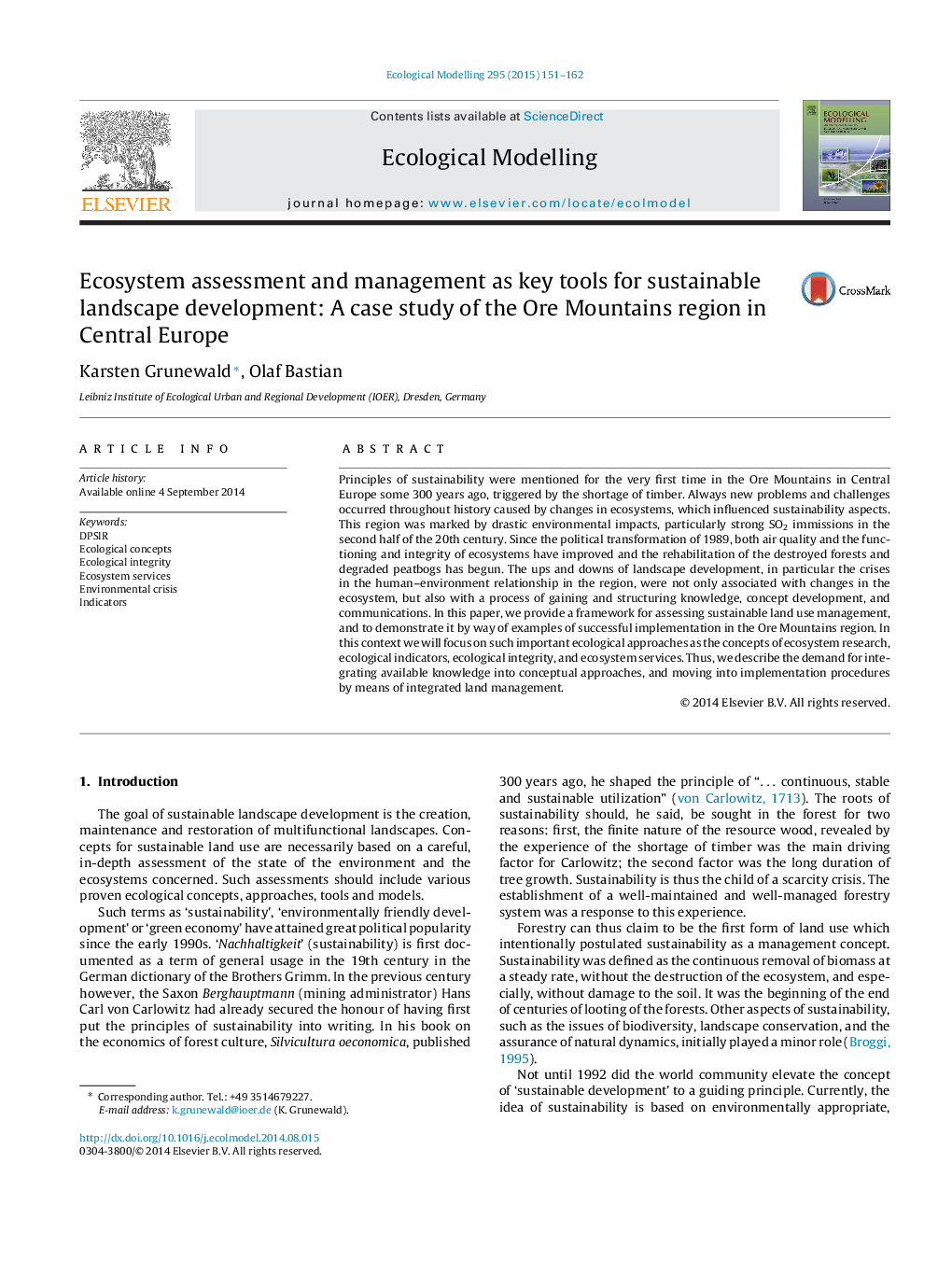| Article ID | Journal | Published Year | Pages | File Type |
|---|---|---|---|---|
| 4375872 | Ecological Modelling | 2015 | 12 Pages |
•Concepts for sustainable land use and management-orientated ecosystem research.•Knowledge development driven by conflicts in human–environmental interactions.•Ore Mountains as ‘model-region’-subjected to aggravating environmental problems.•Future ecosystem adaptation to changing impacts.
Principles of sustainability were mentioned for the very first time in the Ore Mountains in Central Europe some 300 years ago, triggered by the shortage of timber. Always new problems and challenges occurred throughout history caused by changes in ecosystems, which influenced sustainability aspects. This region was marked by drastic environmental impacts, particularly strong SO2 immissions in the second half of the 20th century. Since the political transformation of 1989, both air quality and the functioning and integrity of ecosystems have improved and the rehabilitation of the destroyed forests and degraded peatbogs has begun. The ups and downs of landscape development, in particular the crises in the human–environment relationship in the region, were not only associated with changes in the ecosystem, but also with a process of gaining and structuring knowledge, concept development, and communications. In this paper, we provide a framework for assessing sustainable land use management, and to demonstrate it by way of examples of successful implementation in the Ore Mountains region. In this context we will focus on such important ecological approaches as the concepts of ecosystem research, ecological indicators, ecological integrity, and ecosystem services. Thus, we describe the demand for integrating available knowledge into conceptual approaches, and moving into implementation procedures by means of integrated land management.
